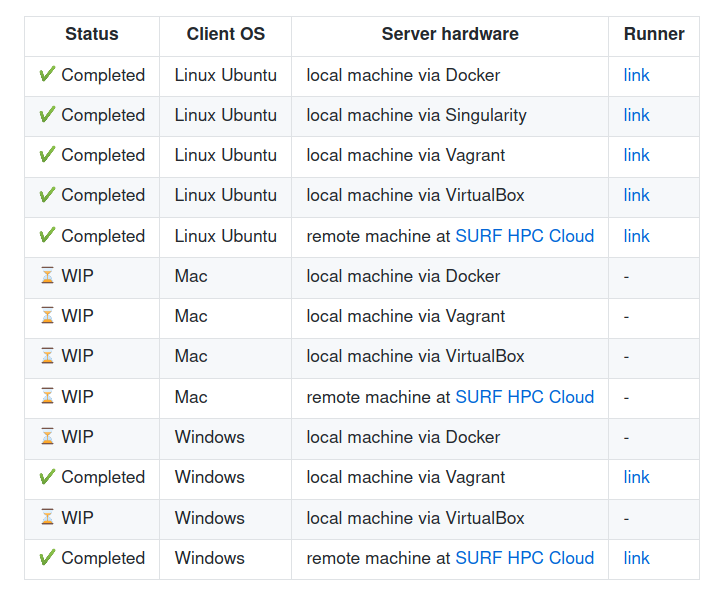self-hosted-runners
Did you know that you can use self hosted runners for GitHub actions? For this non-traditional research software showcase, we want to introduce you to ci-for-science/self-hosted-runners, a repository of recipes to help you get started with your own self hosted runners!

Are you already familiar with self-hosted-runners? We encourage you to contribute to the research software encyclopedia and annotate the respository:
otherwise, keep reading!
- What is nodepy?
- How do I cite it?
- How do I get started?
- How do I contribute to the software survey
- Where can I learn more?
What is a self hosted runner?
You can think of a runner as a server (somewhere, either one that you control or in the cloud) that you can use to run your tests, container builds, and other kinds of continuous integration. In the case of GitHub actions, the service provides documentation for self hosted runners that give you a high level overview of getting started.
Why is it useful?
However, mapping this documentation to real world examples, especially if you are low on bandwidth, can take a lot of time. This is the reason to have repositories like ci-for-science/self-hosted-runners.
The self-hosted-runners repository can quickly give you complete instructions for multiple
different kinds of configurations. Do you want to use a container technology on your local machine? or maybe a cloud that you control? This respository can get you started!
Resources like this repository may not be considered traditional research software, but we can’t deny the value to the research ecosystem to have them. For this reason, the Research Software Encyclopedia aims to also share them proudly.
How do I cite it?
The repository DOI comes by way of Zenodo:
@software{zapata_felipe_2020_3904800,
author = {Zapata, Felipe and
Diblen, Faruk and
Verhoeven, Stefan and
Spaaks, Jurriaan H. and
Spreeuw, Hanno},
title = {Self-hosted runners},
month = jun,
year = 2020,
publisher = {Zenodo},
version = {0.2.0},
doi = {10.5281/zenodo.3904800},
url = {https://doi.org/10.5281/zenodo.3904800}
}
How do I get started?
- GitHub Documentation
- research-software.nl has the original posting.
And if you are a developer, it would be fun to contribute new recipes for runners that are not added yet.
How do I contribute to the software survey?
or read more about annotation here. You can clone the software repository to do bulk annotation, or annotation any repository in the software database, We want annotation to be fun, straight-forward, and easy, so we will be showcasing one repository to annotate per week. If you’d like to request annotation of a particular repository (or addition to the software database) please don’t hesitate to open an issue or even a pull request.
Where can I learn more?
You might find these other resources useful:
- The Research Software Database on GitHub
- RSEpedia Documentation
- Google Docs Manuscript you are invited to contribute to.
- Annotation Documentation for RSEpedia
- Annotation Tutorial in RSEng docs
For any resource, you are encouraged to give feedback and contribute!
Recent Posts
- Posted on 21 Mar 2021
- Posted on 07 Mar 2021
- Posted on 21 Feb 2021
- Posted on 21 Feb 2021